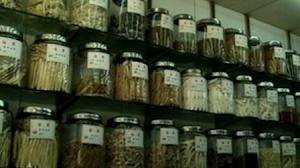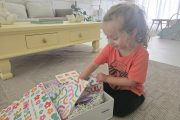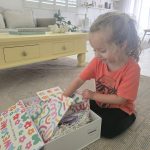The Role of Chinese Traditional Medicine in a Child’s Life


Traditional Chinese Medicine (TCM) remains a very effective way of treating infants and small children. However, many Australian TCM/acupuncture practitioners are often very wary of treating small children unlike naturopaths who are ever willing and confident about treating all family members. In fact, in China, pediatrics is part of TCM specialties, often attracting hundreds of the best and the brightest practitioners.
Whereas others concentrate on herbal remedies for infants, some specialize in children’s pediatric Tui Na massage.
Training for TCM solutions for kids and adults is currently being offered by many health clinics, like Ping Ming Health clinic from Perth, and this is one field that is truly rewarding as children always recover quickly and predictably unlike the geriatric patients. As the infants’ qi and yang aid in their quick recovery so does the physicians gain confidence and optimism in their practice making them to only work harder toward perfection.
As a matter of fact, formulas used for infants and children are basically similar to those used for adults. Aptly put, children don’t require special medications for common illnesses.
Nonetheless, determining the right syndrome differentiation is vital, and likewise, there are a number of factors one should consider when giving herbal medication to toddlers and infants, for instance, you should avoid giving children herbs that are too bitter, pungent, cooling, warming or moving.
Generally for kids, a gentler approach is usually the best.
Additionally, it is advisable that in severe conditions with toddlers and infants, you can halt the treatment as soon as they show some noticeable improvement then let momentum take them to complete recovery.
Dosage Considerations – Dosing is mostly done according to the child’s age, and regardless of whether the medication is liquid, powder or pills, Chinese medicine guides give the following recommendations:
– 1/6 adult dosage for newborns
– 1/3 – 1/2 adult dosages for small babies
– 1/2 – 2/3 adult dosages for young children of ages 2-5 years
– Adult dosage for school children
As a precautionary measure, you should only buy prepared patent medicine. This you can then grind in an electric coffee grinder and return subsequently return to its original plastic zip bag or bottle. A Taiwan-style granule powder can equally suffice. To prepare for use, take a teaspoon of the powder, add the right amount of boiling water so that it is neither too pasty nor too watery, but instead just forms a dark liquid. You can then proceed to filter the dark liquid through a mesh strainer, and the resultant liquid can be accordingly dispensed via a pediatric syringe following the following dosages:
– 1-2 cc for infants
– 3-4 cc for ages 1-2 years
– 3-4 cc for ages 2-3 years
– 4-5 cc for the ages 3-5 years
– One teaspoon or 6 cc for those over 5 years
– For those children aged between 7 -12 years, pills or tinctures are recommended.
Common Illnesses
For many TCM practitioners many pediatric treatments revolve around severe conditions and illnesses. The most common clinical conditions in infants include fever, cough, vomiting and colic. As they get older they get affected more by cold, headache, cough and stomach ache. For the more chronic conditions like asthma, insomnia, constipation and eczema parents can seek out different alternative practitioners.
As always said one can only go into pediatrics if s/he genuinely adores children and so some of the Chinese medicine clinics have embraced this, and thus have kid-friendly clinics with toys, gifts and pictures.
Michelle Lee is an ex-journalist and a blogging beginner from Perth. Although she is a working mom, she finds time to research and study the topics that are important to her, which are mostly health related. Having dealt with autism in her family, she understands what is really important in life, but she still enjoys “girly” stuff like fashion and cooking. Follow her posts @ecellulitis










